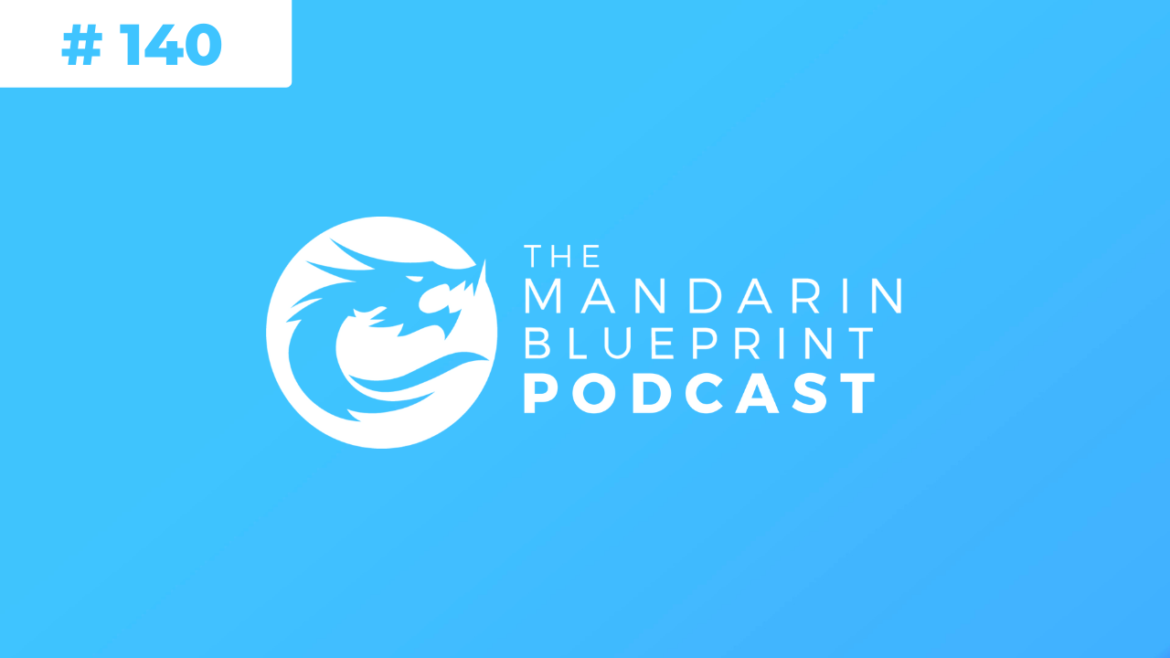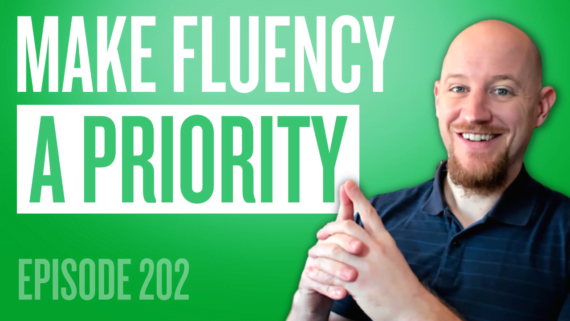
140. The Mandarin Blueprint – Go Fund Me
欢迎光临! Welcome!
You can now subscribe to the podcast by the links below, or you can subscribe by copying the following URL into your favorite podcast APP.
The Mandarin Blueprint Podcast focuses primarily on The Blueprint online curriculum. Creators Luke Neale & Phil Crimmins answer questions and comments, discuss topics related to China and Mandarin learning, and have special guests.
Want to learn how to speak fluent Chinese fast? Join our free Webinar right here.
Donate to Create The Mandarin Blueprint Advanced Course!
Help us fund the creation of the MB Advanced Course:
Go Fund Me: https://gofund.me/f9eafc35
PayPal: https://paypal.me/mbadvancedcourse
0:00 Affiliate Link & Reviews
Become a Mandarin Blueprint Affiliate
Leave us a Google Business Review 🙂
3:31 Comments & Emails
Kate Gans by Community
I came across the character 疤 while reading Harry Potter today. The component for illness and the character for crust 巴 combine to create “scar” ?
5:26
Anne Giles on 一样 in Context
Intelligent, informed, articulate commentary on why we need to be able to communicate with each other. Seeing our world in terms of civilizations rather than nations is a significant contribution to my thinking on the state of things. Thank you, Phil.
12:07
Kevin Lee on Vocab Unlocked from 长: 长大 – 长相 – 长得
Ok, so, I need some explanation on this one. For character #267 (长), we use a ch- pinyin initial, but in all of the vocab unlocked, we use the zh- pinyin initial. Did I miss something? Is there a reason we used the ch- initial for the character, but not for any of the vocab unlocked?
14:24
Korneel Snauwaert on Level 17 Complete
Hi! I’ve been on the course since August (so about nine months) and April was the first month that saw me not skipping a single day of adding at least one lesson. I have a 43-day streak to be precise and it’s all because I’m using an extra app to stay motivated. I’ve been using ‘HabitBull’ for a while now, which is one of the many apps that help build (or kick) habits. I’ve found it to be extremely useful to get some speed in my progress.
It would be amazing if this course had its own streak feature, it’s literally the only thing that I think could make this otherwise perfect course better.
15:48
Philip Dong on Make a Movie 得
Hi Luke & Phil:
In the sentence, 今天是我妈妈的生日,我得早一点下班给她买个蛋糕; could it be written with this way 今天是我妈妈的生日,我得早一点下班买个蛋糕给她 instead? Thanks!Philip Dong
17:00
Matt Shubert on Make a Movie 题
It’s still wild that a character this dense with strokes is not only decipherable now, but I consider it *easy* to write, say, and understand. Sometimes I have these moments in the course that really hit home how well this method works.
17:58
Matt Shubert on Vocab Unlocked from 见: 看见 – 见面 – 再见 – 明天见
This seems a good place to ask a long-standing question I’ve had: is there any meaningful difference between 看见 and 看到? I understand both of them are verb+result two character verbs, but I can’t seem to decipher any difference in when to use them.
Thanks!
18:51
Chris Lewis on Mandarin Tones: 3rd Tone
I finally got around to starting this course and glad I did as I’ve already learned something new about 3rd tone. Thanks guys! Really interesting and will undo some mistakes now.
19:26
Casie Moen on MAKE A MOVIE 但
This character has the same pronunciation and tone as the previous one, and the written character is very similar too.
Should I be doing anything to make sure my stories for the two aren’t overlapping too much, or is it ok if I kind of share a story between the two? I’m guessing in spoken Mandarin, context clues will help me differentiate between the two, but at this stage, how much should I be doing to keep the two characters distinct in my mind?
21:25
Jonathan Evans on It’s a Word! 气
Is there a time where I don’t need to remember each character by it’s story or prop? In my head is there a time where I read directly? Right now I cannot see that future ?
22:42
Kate Gans on Level 38 Complete
Thanks for adding the traverse.link URL to show progress made in each level. Sending the link to family and friends for them to see my progress is easier than sending a file!
23:35
Chris Lewis on Vocab Unlocked from 总: 总是
How do you get Snape from 总是 or is it just a link I make in my mind? I love the movies.
24:29
Chris Lewis on 来自 in Context
I imagine Lorenzo 来 going to the Zoo 自 in the backyard of my childhood home and lying down next to Zvonne 自 who’s inside the lion cage (scared of course) and saying where did you come from? I’m using 自 as the mnemonic for zoo and Zvonne.
25:59
Robert Carver on Vocab Unlocked from 响
影响 might be my favorite word so far–“shadow sound” to mean “influence”. What an awesome way to convey that meaning. To remember the word, I think of Wormtongue from the Lord of the
Rings movies, leaning over like a shadow to whisper into the ear of the king to influence him.
26:52
L Karran on Pick a Prop for “一” – Razor Blades, Cigars & Lead Pipes
Isn’t the etymology of yī probably just a result of old school counting methods using sticks on the ground. Isn’t not just a one stick on the ground – 一 ; 二 er is two sticks and 三, Sān is literally a representation of 3 sticks…idk…thats how it alway made sense to me – an early representation of abstract numbers
27:57
Hank Elliott on Vocab Unlocked from 抬
抬不起头 Tái bù qǐtóu
Google says “can’t afford to look up” MB says ‘feeling shame’ or ‘inferior’ = not being able to look up, or can’t face the world! Beautiful and simple!! I love Chinese!!
28:38
Kairi Shikari on Vocab Unlocked from 暖
I encountered 暖和 in the Pimsleur audio course recently, however it was pronounced nuǎnhé instead. it seems a search online reveals either pronunciation can appear. Can either be used or do
they have slightly different meanings?
29:23
Richard Krause on Vocab Unlocked from 既
It appears that 既 in the first sentence (这面包真的是既便宜又好吃,你在哪里买的呢) has the meaning “both” – is that right?
30:28
Jason Pon on 上车 in Context
下雨天,出门就上车,也不怕雨,很方便。
First time seeing 天 meaning ‘when it’s…’ in 下雨天. Is this just similar to 的时间,当时,among a couple others I’ve seen?
31:24
Jason Pon on 上车 in Context
很多车都不让宠物上车。
Was a bit thrown off by this one because I thought the subject was cars and the object pets (A lot of cars don’t let pets in the car). Though the translation looks to me that Pets are the subject. What am I missing?
“Pets aren’t allowed on/in a lot of vehicles.“
33:27
Rebecca Wheble on Vocab Unlocked from 协
在大家的协助下
Hi, could you please explain what the下 does in this phrase?
https://www.loom.com/share/68aa45dad28049caa9fa64eea6da623c
https://www.loom.com/share/5046e5a3538b46b2b7db8932353d5d4d
34:44
Jason Pon on 汽车 in Context
我又什么时候能买得起汽车呢?
Can you help me breakdown this sentence/understand 买得起? Having trouble understanding how it means ‘afford to buy’
36:21
Jason Pon on 连 in Context
她连看都没看我!
What’s the purpose of the 2 看 in this sentence? Thanks!
38:06
Jason Pon on 辆 in Context
一年以前,她买了一辆红色的电动车,然后骑到我家楼下给我看
In this sentence, does the 楼下 suggest that she rode the e-bike to the 楼下 (basement) part of the house? Or like… street level?
ANSWER:
负 fù – negative
负一楼 – Basement Level 1
负二楼 – Basement Level 2 (two floors below street level)
负面 fùmiàn – negative (as opposed to positive)
负能量 fù néng liàng – negative energy
39:48
Matt Shubert on 多么 in Context
Is there any meaning or emphasis difference for when to use 有 before 多么? I thought maybe it was an adjective vs. verb thing, but in the sample sentences, there’s two examples with adjectives:
subject + 多么 + 好看
subject + 有多么 + 可爱And two with verbs:
subject + 多么 + 爱
subject + 有多么 + 爱I do understand the idea of more input leading to natural understanding of what sounds right/wrong to use, but in this case I really don’t get the 有 here.
ANSWER:
你也只有一页一页认真地教他们。还有,他们考得好的话,你还得送他们现金或者一些很贵的东西。不过,你慢慢也会发现,这些小东西有多么可爱,你有多么爱他们。
42:44
Matt Shubert on 宝贝 (宝贝儿) in Context
This isn’t related to the lesson we’re on but I was curious about 称呼 in this sentence:
他喜欢称呼他女朋友“宝贝(儿)”。
Would the same meaning be achieved by saying:
他喜欢叫他女朋友“宝贝儿”。
Or is 叫 more of a passive verb, like “is called” (“she is called baby”), while 称呼 is the active version of that verb, like “call” (“he calls her baby”)?
44:10
Jason Pon on 高 in Context
多吃还可以长得更高。
Does 长得 imply growing as well? I thought it was just ‘to look like’. Is this literally ‘You can look taller by eating more’?
Can this also be said with 变得?
44:45
Kairi Shikari on Vocab Unlocked from 达
Is the main difference between 达到 and 到达 something like reaching something abstract (expectation, goal etc) VS reaching an actual destination? Or are they interchangeable?
45:57
Xiao En on 记 in Context
In the sentence 我记下你的电话了, isn’t that 电话 is the phone itself, but phone number is 电话号码? or 电话 can both mean the phone and the phone number to Chinese people?
46:35
Xiao En on 记 in Context
In the sentence 儿子总是记不住我说的话, I thought 不 comes before the action/verb it negates. . Should it not be 不记? or it could go either before or after the action it negates?
48:11
Christine on Vocab Unlocked from 区
Just following on to Soren’s comment though… The supposed meaning that the sentence is supposed to convey for this word is 用法 2 – “administrative division”: 句子 很多城市都在大力发展它们的高新区。So where is the ‘Administrative division’ in this sentence? Surely the meaning in this sentence is ‘zone’ 是不是?
50:13
Chris Lewis on Required Sentences vs. Optional Sentences
This may not be the right place to ask this, but looking in the required sentences and came across this one: 猪妈妈担心地说.
I understand all but why the 地 is before the 说. Is it a mistake or gives some special meaning?
51:31 Vocab Living Links
This section covers “Living Link” mnemonic techniques to remember Chinese words of two or more characters. Here’s a video explaining the theory behind it.
Chris Lewis on Vocab Unlocked from 总: 总是
“Always on my Mind” a song by the Pet Shop Boys we used to always dance to in the late 80s and early 90s. There was a particular young woman who was always on my mind back in those days. She’s the new image.
52:04
Ceri Woods on Vocab Unlocked from 样: 一样 – 什么样 – 样子
For ‘the same’ I had to use that meme of the two Spider Men pointing at each other, it was too good!
Also a ‘tree sheep’ teaching ‘style’ had me laughing a lot


